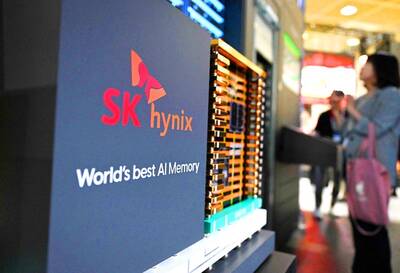The Wei (魏) family, which founded and owns the discredited Ting Hsin International Group (頂新國際集團), yesterday was urged to withdraw from the management of the Taipei Financial Center Corp (TFCC, 台北金融大樓公司), which operates Taipei 101.
The call came from Minister of Finance Chang Sheng-ford (張盛和) ahead of today’s meeting of the board of directors and supervisors of TFCC.
The Ting Hsin group, a huge food enterprise that has also expanded into other industries, such as real estate and telecommunications, is the largest private TFCC shareholder, with a 37.17 percent stake, while government-controlled financial institutes hold a 44.35 percent stake.
Ting Hsin has been implicated in a recent spate of food scares involving tainted oil, sparking public outcry and a joint boycott of the business group.
Chang suggested that the Wei family, which holds five of the 13 seats on TFCC’s board of directors, step down to protect the image of the financial center.
The government has six seats on the TFCC board, while Cathay Financial Holding Co (國泰金控) and CTBC Financial Holding Co (中信金控) hold one each.
CTBC Financial, which has a 7.73 percent stake in TFCC, said it does not intend to sell its shares and plans to support whatever decision the governmental shareholders make.
Cathay Financial, which holds a 7.73 percent stake, declined to comment, except to say that it would not auction its shares.
Meanwhile, the Ting Hsin group, known for its flagship food brand Wei Chuan (味全) and instant noodle brand Master Kong (康師傅), is expected to withdraw from the board of Wei Chuan Foods Corp (味全食品) by the middle of next month.
Former Wei Chuan Foods chairman Wei Ying-chun (魏應充) resigned on Oct. 12 after two other firms which he also heads were implicated in a food scandal.
Wei on Tuesday last week was indicted on charges of fraud, forgery and food-related regulatory violations for his role in an adulterated oil scandal that erupted in October last year.
Ting Hsin has said the Wei family, which is from Changhua County, plans to withdraw completely from Wei Chuan’s management at the company’s upcoming board meeting.
One of Ting Hsin’s subsidiaries, Tingyi (Cayman Islands) Holding Corp (康師傅控股), on Sunday said on its official Web site that Wei Chuan Foods is no longer authorized to produce or sell instant noodles in Taiwan under the Master Kong brand.

Intel Corp chief executive officer Lip-Bu Tan (陳立武) is expected to meet with Taiwanese suppliers next month in conjunction with the opening of the Computex Taipei trade show, supply chain sources said on Monday. The visit, the first for Tan to Taiwan since assuming his new post last month, would be aimed at enhancing Intel’s ties with suppliers in Taiwan as he attempts to help turn around the struggling US chipmaker, the sources said. Tan is to hold a banquet to celebrate Intel’s 40-year presence in Taiwan before Computex opens on May 20 and invite dozens of Taiwanese suppliers to exchange views

Application-specific integrated circuit designer Faraday Technology Corp (智原) yesterday said that although revenue this quarter would decline 30 percent from last quarter, it retained its full-year forecast of revenue growth of 100 percent. The company attributed the quarterly drop to a slowdown in customers’ production of chips using Faraday’s advanced packaging technology. The company is still confident about its revenue growth this year, given its strong “design-win” — or the projects it won to help customers design their chips, Faraday president Steve Wang (王國雍) told an online earnings conference. “The design-win this year is better than we expected. We believe we will win

Power supply and electronic components maker Delta Electronics Inc (台達電) yesterday said it plans to ship its new 1 megawatt charging systems for electric trucks and buses in the first half of next year at the earliest. The new charging piles, which deliver up to 1 megawatt of charging power, are designed for heavy-duty electric vehicles, and support a maximum current of 1,500 amperes and output of 1,250 volts, Delta said in a news release. “If everything goes smoothly, we could begin shipping those new charging systems as early as in the first half of next year,” a company official said. The new

SK Hynix Inc warned of increased volatility in the second half of this year despite resilient demand for artificial intelligence (AI) memory chips from big tech providers, reflecting the uncertainty surrounding US tariffs. The company reported a better-than-projected 158 percent jump in March-quarter operating income, propelled in part by stockpiling ahead of US President Donald Trump’s tariffs. SK Hynix stuck with a forecast for a doubling in demand for the high-bandwidth memory (HBM) essential to Nvidia Corp’s AI accelerators, which in turn drive giant data centers built by the likes of Microsoft Corp and Amazon.com Inc. That SK Hynix is maintaining its